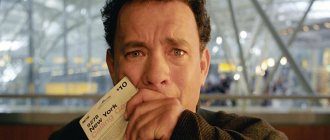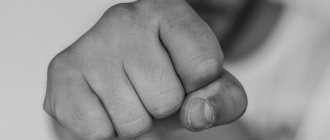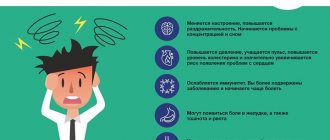In this article we will try to answer the question: “Aerophobia, what is it?” If you have a fear of flying, you are not alone! Many years of experience of psychologists show that aerophobia can cause various conflicts and troubles in the family, and in the business sphere it leads to the failure of important projects.
Aerophobia can provoke a decrease in self-esteem and lead to stress and depression. In addition, avoiding air travel out of fear, or overcoming your fears with alcohol, can make the problem worse and create fertile ground for others to arise.
Treating aerophobia is not that difficult. There are many real stories of successful fight against aerophobia and final victory over it. By eliminating this fear, you will discover a whole new world of freedom of movement and amazing travel!
How does a phobia arise?
There are several reasons for this phobia:
- First of all, our brain consists of two hemispheres. The left hemisphere is responsible for logic and rational thinking. This hemisphere helps us assess risks, display statistics, etc. While the right hemisphere does not analyze anything. This area is responsible for emotions and feelings; it gives rise to fantasies and premonitions. In aerophobes, the interaction of these two areas of the brain is disrupted and during the flight the activity of the left hemisphere decreases to a critical level. Due to this, the work of the right hemisphere comes to the fore, which entails turning off logic and falling into the power of emotions and fears.
- The second reason for the occurrence lies in personal experience. For most people, flying on an airplane is a fairly rare event, and the lack of successful and safe flights stored in memory creates the ground for the birth of fears.
Manifestations of aerophobia
A person with aerophobia begins to get nervous a few days before the flight. Many people can’t stand it and give up their tickets.
“If you don’t know what to do when you’re afraid to fly, take the train.” This is what friends advise their acquaintances who suffer from aerophobia. And so they do. The journey may be longer, but it’s safer.
However, this option is not always acceptable. When traveling intercontinentally, an airplane is the best mode of transport. And there are situations when you urgently need to move from one point to another.
A person with aerophobia begins to feel nervous a few days before the flight.
Due to the fear of flying on an airplane, a person may experience the following symptoms during a flight:
- Nervousness, irritability, impulsiveness, tension.
- He is afraid and does not want to communicate with anyone, constantly listens to how the engine is working, to see if there are any problems. Doesn't lose sight of the behavior of the crew. The slightest worry sends him into a panic.
- The heart begins to beat faster, blood pressure rises, and sweating increases.
- Your nose may bleed or vomit.
- Dizziness and weakness begin, even to the point of hysteria or loss of consciousness.
- Some people try to distract themselves by reading a book, but aerophobes don't do it well.
- Some people prefer to drink alcohol or take sleeping pills.
For people with aerophobia, flying becomes a real challenge. They calm down only after they feel the ground under their feet.
During a flight, a patient with aerophobia’s heart begins to beat faster, blood pressure rises, and sweating increases.
Peculiarities
Aerophobia can be a separate phobia, and may also indicate the presence of other diseases, such as claustrophobia or acrophobia. Aerophobia is most often not a disease, but a symptom of other diseases.
Fear of flying is actively discussed nowadays, as this is one of the most pressing issues for many people who have at least some need for air travel.
Attacks of Aerophobia cause continuous, intense, incapacitating fear that can develop into panic. A person can understand and realize that his anxiety is excessive and has no rational reasons for its occurrence, and exceeds in its intensity adequate anxiety.
What is not recommended to do if you have aerophobia?
If a person knows that he will need to travel by plane soon, he should not do certain things, regardless of whether he has aerophobia or not. These include:
- Reading books and articles about airliner crashes in different parts of the world. This will only increase your fears of flying.
- Watch a video on the same topic.
- Taking medications without a doctor's recommendation. Self-selected medications may be inappropriate and lead to the opposite effect.
- You shouldn't eat heavily before a flight. Many people vomit during it. A full stomach raises this risk much higher.
- Drink alcohol in large doses. This can lead to inadequacy and aggressive behavior. You can harm yourself and others.
- If one of your neighbors admits that he is afraid to fly on an airplane, you should not share his fear with him, but rather help him with advice on how to survive the flight easier.
You can take something with you on the road that evokes positive emotions. For example, your favorite book or sweets. This will distract you from negative thoughts.
And there is no need to stress yourself out by imagining the horrors of the disaster. It's up to the pilots to worry about the plane crashing. And the passenger should enjoy the flight and not be afraid of anything.
Signs
How does aerophobia manifest itself, symptoms:
- Rapid pulse.
- Chest pain;
- Active sweating.
- Nausea, vomiting.
- Frequent urination.
- Headache.
Side symptoms:
- Regular muscle weakness.
- Fatigue, weariness.
- Poor concentration.
- Irritability, nervousness.
- Bad sleep, nightmares.
Causes
The main causes of fear of flying are:
- Genetics. The tendency to this phobia can be inherited.
- High level of human anxiety, emotional instability
- Suspiciousness, suspiciousness.
- Distrust of other people.
- The need to constantly monitor the situation. It is a misleading feeling that such situations are safer than uncontrollable ones.
- Lack of technical awareness, lack of understanding of the physics of the flight process.
- An erroneous opinion formed by the media, which creates the illusion of supposedly “permanent” plane crashes.
- Formation of a conditioned reflex. A regular feeling of fear in previous flights instills in a person a conditioned reflex: “flight is fear.” The consequence of this process is the automatic activation of the phobia activation mechanism when the need to fly arises.
- A negative event associated with a flight in the past. This may be a real event or a fictitious, contrived one.
- Aerophobes who have experienced panic attacks in the past are concerned about a possible resurgence of negative manifestations of the phobia on board an airplane, where medical care is limited.
- People who suffer from claustrophobia or acrophobia may feel fear on an airplane due to their primary phobia.
- Incorrect thinking, ignoring logic, predominance of the right hemisphere of the brain in the thinking process.
According to psychologists, aerophobia sometimes occurs, the causes of which remain unidentified. Unfortunately, such cases cannot be treated.
General characteristics of the pathology
Women feel the fear of flying more acutely than men. It usually appears after 25 years, when youthful carelessness passes and a person begins to think about life. Many people at this age already have a family, and their own safety becomes more important than before. Therefore, before a flight, such people begin to get nervous and look for a reason to refuse it.
Women feel the fear of flying more acutely
Aerophobia can be associated with claustrophobia, when a person feels unwell in a closed space. Fear of heights also adds to the anxiety and makes the flight painful.
The fight against aerophobia can be carried out on your own for a long time, but without the help of a specialist it may not bring results.
Varieties
- Rationally determined aerophobia.
- Irrational aerophobia.
People suffering from aerophobia are divided into three groups
The first see danger exclusively in the airplane, as well as in the very fact of flight, high altitude, qualifications of pilots, technicians, reliability of equipment, etc. They see danger that can come from outside.
The second group of people thinks the opposite. They see the threat within themselves. The problem lies in their own bodies, in the anticipation of uncontrollable fear, in the likelihood of a panic attack, in the loss of control over their personality and their behavior.
The third type of aerophobes feel threatened both in airplanes and in themselves.
Treatment
One of the most frequently asked questions on this topic is: “I have aerophobia, how can I get rid of this problem, is it necessary to go to the doctor?” Let's try to answer it.
You can get rid of the problem without resorting to drug treatment for aerophobia. But when the disorder lasts more than six months, and the fear of flying does not disappear, and all independent attempts to overcome it do not lead to success, it is worth contacting an experienced psychotherapist.
You need to consult a doctor if:
- You feel constant fear.
- You cannot cope with anxiety, which, in its intensity, clearly exceeds normal anxiety.
- You deliberately avoid flying on an airplane.
Treatment methods:
- Neurolinguistic programming technique.
- Drug treatment.
- Modern methods of hypnotic influence.
- Cognitive behavioral therapy.
Fear of flying on an airliner
So, you have determined that you have not one of the phobias, namely the fear of flying, so the topic is “I’m afraid to fly on an airplane, what should I do?” remains relevant for you.
Alternatively, in Russia there are psychologists who specialize in the treatment of severe forms of phobias, including aerophobia. In their practices, psychologists attract aviation personnel for whom constant flights have become an integral part of their lives.
Psychologists teach their patients to fight their fears. There are also some specialists who use hypnosis as a treatment for this disease.
A person can fight mild types of phobias on his own.
But what to do if you are afraid to fly on an airplane, bad thoughts and fears do not go away? We encourage you to try different relaxation techniques. In this situation, reading and listening to the sounds of nature can help.
You can try to distract yourself from what is happening . In this case, tasty food, such as chocolate, can help as a sedative. As a last resort, you can take a sedative or herbal tea.
To cope with anxiety, you need to occupy yourself with something distracting, pleasant
also close your eyes and focus on breathing . Breathe deeply and calmly, inhaling and exhaling until rhythmic breathing is restored. In the process of restoring your breathing, you need to relax all the muscles of your body as much as possible and think about the purpose of your trip. You need to think about all the positive things that the purpose of this flight will bring. Imagine in detail the details of everything that happens in the future (promotion at work, meeting with loved ones).
We must not forget that the plane is a safe mode of transport! Just like a car that confidently drives down the road, an airplane floats in the sky with the same confident ease.
Approximately 65% of people suffering from aviophobia feel intense fear from processes such as turbulence or overheating of an airplane in the air. To help such passengers understand these processes and overcome their fears, you can remember the laws of physics, and also read the article on our website about “How an airplane takes off and flies.”
I would also like to note that all Russian airlines that transport passengers have safety and quality certificates according to international standards .
Therefore, people’s opinion, accepted since the 90s, is that Russian aircraft for transporting passengers is a wreck, and the pilots and other personnel suffer from alcohol addiction.
Russian airlines are members of the largest international alliances.
Aeroflot is the owner of the youngest aircraft fleet in Europe, one of the most modern in the world. Transaero is one of the 15 safest and most reliable air carriers in the world.
If the plane is, for example, Saratov Airlines, this means that it is completely safe for flights. It should be remembered that all aircraft undergo strict and mandatory technical checks, and air carriers have an appropriate quality certificate. This suggests that flying is quite safe!
Also, you don’t have to worry that the plane you’re flying on may be ten, fifteen, or even more than twenty-five years old . In Russian airlines, unlike other airlines in the world, such equipment is very rare. The operation of such aircraft is a normal phenomenon, since the resource reserves of this equipment are very large and reliable. All equipment is monitored very well and equipment is checked every day.
As for the reliability of aircraft, I would also like to note that they have at least two engines, and the probability of engine failure is too low. According to technical and safety requirements, if one of the engines fails, the aircraft remains in the air without descending. All aircraft systems are duplicated.
The cost of the engine is approximately ten million dollars. This part is the most expensive. Therefore, it is subject to very serious care and monitoring of serviceability.
For those who are afraid of flying, the best thing is relaxation techniques












